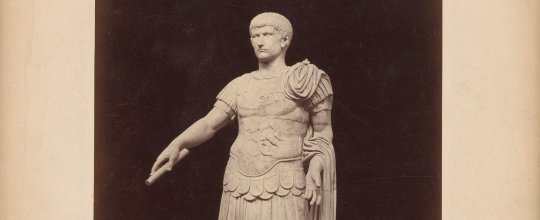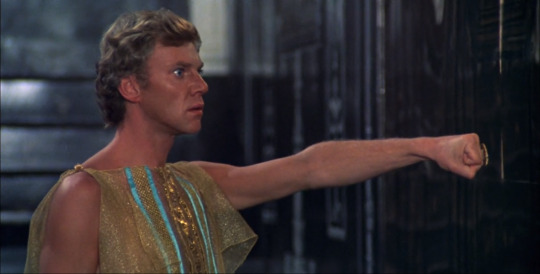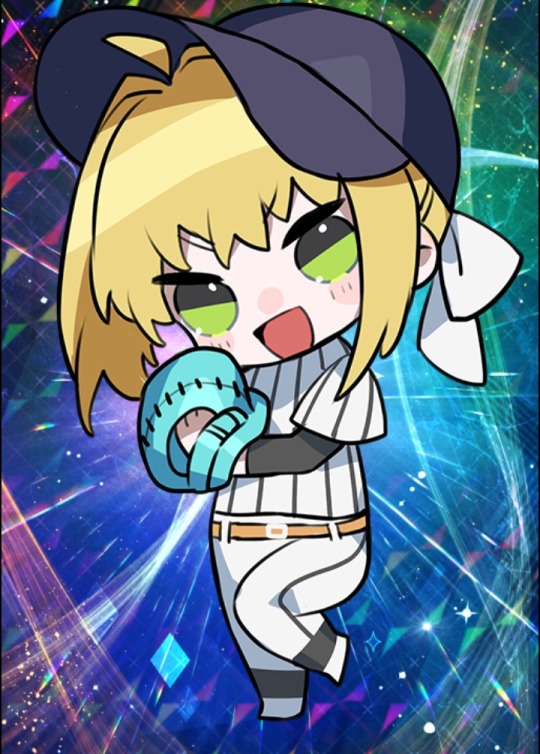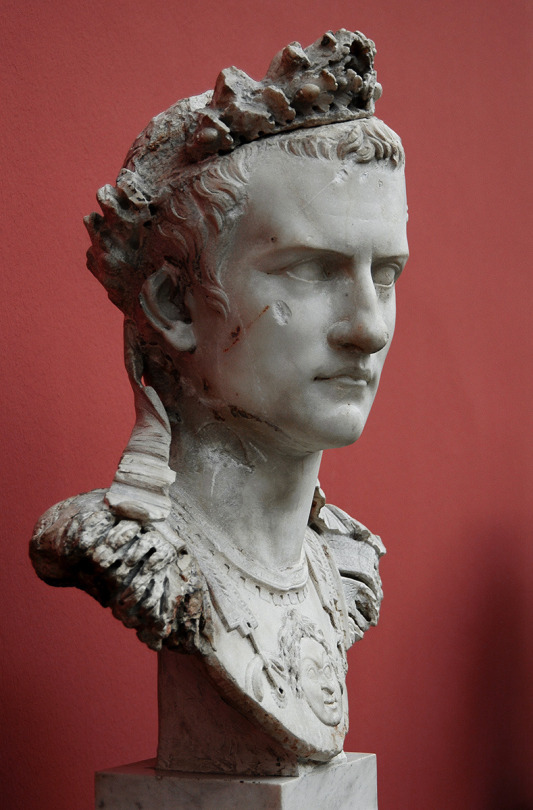#Gaius Caesar Augustus Germanicus
Text
I've been thinking about how to articulate a thought I had about a possible Doylist/non-diegetic reading(EDIT: I originally wrote "Watsonian" here, which is the opposite of what I meant X| X| Brain, you Tricksome Jester *shakes entirely metaphorical fist*) of Eridan's Trollian handle, caligulasAquarium, in response to a post of @mmmmalo's, and I think I've got it.
Ok So: the popular perception of Caligula is as a "Mad Emperor". One of the points used in this depiction is his "War on the Sea", which is taken as obvsl absurd and empty and irrational(and possibly hubristic). Eridan chooses to call himself "caligulasAquarium" and he lives in a wrecked ship(a feature commonly put in aquariums)... on the surface.
So like: maybe the title is meant to be taken by the audience as ironic. Eridan's claim to an "Aquarium" is as absurd and empty and irrational as Caligula's claim to have warred upon the sea(in the common understanding of those events; as a matter of history this seems to be a Telephone distortion, from the sources I can find).
A few more points that have occurred to me since I started writing this:
Caligula "Made War on the Sea"; Eridan wants to "Make War on the Surface" by Killing All Landwellers, carrying forward the themes of inversion btwn Alternia and Earth.
Also: "Kill All Landwellers", "Kill All Humans": he's lampshading common evil-alien-overlord tropes
...Which in itself is sort of dunking on HIM, since Eridan is nobody's overlord he's just some GUY. Like: Yes, he's "Nobility" due to blood-caste, but he has no influence, no power, no RESPECT from anyone we meet, no friendships let alone alliances with other socially powerful individuals(other than Feferi, who seems to have foresworn all that to monastically care for G'lybgolyb) that he could USE to have influence; he's just a loner with his grand-dad's gun and allot of pretension.
...which you could argue furthers his parody of USian internet white-supremacists? Like: He is THEM: a gun-humping loner who only feels comfortable talking to the people he claims to hate, with no idea how unpleasant he makes himself to interact with, and even less interest in introspection or self-awareness, fetishizing past genocides as a way to claim for himself a "Glorious Past" he had nothing to do with.
As Feferi(and possibly other characters I'm forgetting) point out, Eridan's ambition to Kill All Landwellers is more than a little absurd. He's never really DONE anything to plan or prepare for it, and aside from Fef he exclusively hangs out with and befriends Landwellers, as well as LIVING ON LAND(well: a sandbar or reef). This could be taken as furthering the Caligula "War on the Sea" parallel.
Expanding on the last: Caligula, THE EMPEROR OF ROME and Grandest of Nepo-babies, was rather notably disdainful of and hostile towards the Roman nobility and inherited wealth/rank. This connects to Eridan in two ways I can think of: 1) his avoidance of other seadwellers, and 2) his philosophical hostility to landdwellers while Being, in practice, A Landweller. Basically: both Hate things about themselves shared by others.
Reinforcing #3: the choice of Caligula, a Troll-Emperor. Again: Eridan is Just Some Guy; he does not command armies, he does not command society, he can't even command Equius, who GETS OFF ON being ordered around. This is Pretension.
...which, I guess, you could connect AGAIN back to Caligula via the popular memory of him wanting to be treated "As A God", but it should be noted that 1)everyone who wrote anything about him hated the guy and was explicitly dunking on him, so we don't know how accurate these charges are, and 2)in the Roman context, while legal apotheosis was reserved for after death, imperial Divinity was already de facto given that sacrifices and prayers to the Emperor's health and success were legally mandated civic religious duties, AND 3)that classical Greeks and Romans, contra the Abrahimic societies which would later create this popular memory, considered apotheosis a real possibility for notable individuals.
#Homestuck#Eridan Ampora#caligulasAquarium#Irony#zA Analysis#Homestuck Analysis#History#Gaius Caesar Augustus Germanicus#Caligula#Historiography#zA Writes#Our Staff#zA's Endemic Historicality#Watsonian vs Doylist#My Traitorous Brain#zA Corrections
117 notes
·
View notes
Photo










caligula, gawain and the green knight / caligula (1979) dir. tinto brass / suet.calig.22, trans. myself / statue of caligula at naples
#im normal about him btw#caligula#gaius caesar augustus germanicus#caligula 1979#malcolm mcdowell#webweave#tinto brass#suetonius#parallel#web weaving#god complex#tagammemnon#rome#my posts#the trans myself BARELY deserves mentioning its such a small line lol#my webweaves#popular
119 notes
·
View notes
Text
Ok, hear me out.
I was just reserching about Ferdinand Kignsley. Not me hiperfixating with Hob Gadling. Then started watching parts from Dracula Untold so I could se him as Hamza Bey. Well, there's not too much so watch of our beloved Ferdinand in the movie, BUT just found out about the old vampire, the one who made the deal with Vlad III Tepes. The vampire, in addition of being Gaius Caesar Augustus Germanicus (that's for another post) is portrayed by Walter Charles Dance. WTFF. I mean, ok, we could see Charles as Burges in The Sandman, but is the one who plays as Tywin Lannister (not big news here). You know what happens at the end of the movie? We have Walter Charles Dance literally saying "Lets the games begin". fdsnjaklfgdwheajkglwerfhbAJUKGLFWERAFGHDWIKLÑagvbfjkelagbfjeklagvhbnrjekal. Dracula Untold was released on 2014 and the first season of Games of Thrones on 2011. Charles already played as Tywin Lannister by then.

Now I have the seed for a effing multiverse somehow in my brain. Thank you for coming to my TED talk.
#the sandman netflix#the sandman#ferdinand kingsley#hob gadling#dracula untold#dracula#game of thrones#charles dance#Tywin Lannister#gaius caesar augustus germanicus#dark fantasy#I want to see vampires on the sandman so I could enjoy two of my favourite things together
22 notes
·
View notes
Text

Gaius Caesar Augustus Germanicus (31 August 12 AD – 24 January 41 AD), better known by his nickname Caligula, was Roman Emperor from AD 37 until his assassination in AD 41. He was the son of the Roman general Germanicus and Agrippina the Elder, Augustus' granddaughter, members of the first ruling family of the Roman Empire. He was born two years before Tiberius was made emperor. Gaius accompanied his father, mother and siblings on campaign in Germania, at little more than four or five years old. He had been named after Gaius Julius Caesar, but his father's soldiers affectionately nicknamed him "Caligula" ('little boot'). Photograph By Bridgeman Images

The Northern Lights Glow and the annual Perseid meteor streaks over the Cypress Hills Interprovincial Park in Saskatchewan, Canada 🇨🇦 on August 10, 2018. Astrotourism—the practice of traveling to stargaze—is a booming industry. Photograph By Alan Dyer, Science Source

A Crowd Watches the Moon Rise over the Temple of Poseidon, 43 Miles South of Athens, Greece 🇬🇷, on May 15, 2022. Photograph By Louisa Goulimaki, Getty Images
#Caligula#Gaius Caesar Augustus Germanicus#Roman Emperor | AD 37 — AD 41 | Assassinated#Northern Lights#Cypress Hills Interprovincial Park | Saskatchewan | Canada 🍁 🇨🇦#Temple of Poseidon#Athens | Greece 🇬🇷
0 notes
Text
The Roman










#fate grand order#fgo jp#fgo grail league#nero claudius#nero claudius caesar augustus germanicus#romulus quirinus#romulus#gaius julius caesar#caligula#pope of joan#constantine xi#charlemagne
278 notes
·
View notes
Text
That feeling when you call your homie 'girlie' as a joke

so he hacks you to pieces in an empty corridor of your mansion
#and then waits for your wife and newborn child to come home#and nerfs them too??#now thats what I call a girlboss#caligula#bootikins#gaius julius caesar augustus germanicus#ancient rome#emperor caligula#mary beard
5 notes
·
View notes
Text
The single funniest thing I learned when studying the Roman Empire is the fact that in his life and centuries after his death, everyone calls Gaius Julius Caesar Augustus Germanicus…Caligula.
Like. That’s the nickname his dad’s coworkers gave him when he was a literal toddler. It means “little boots” because again, baby in an army camp. And that may as well have been his actual name for how often people called him it.
It’s like being called “King Slugger” for all time.
182 notes
·
View notes
Text

Gaius Caesar Augustus Germanicus (12 - 41)
Roman emperor from 37 to 41 AD
Caligula marble bust, with Cuirass and Crown of oak leaves "corona civica." Photo: Sergey Sosnovskiy 2008. Ny Carlsberg Glyptotek in Copenhagen (inv. 1453) [edited img]
On January 24th, AD 41, Caligula, his wife Milonia Caesonia and his 2 y/o daughter, Julia Drusilla, were stabbed to death by officers of the Imperial Guard.
The assassins immediately proclaimed a new emperor: Claudius (the uncle). On the same day, portraits of Caligula were thrown into the Tiber. Three of the ca. 45 known portraits of Caligula were in fact found in that river. This cuirass bust is one of them.
Caligula’s brief reign and life is the fascinating story of a boy-emperor, who, in the early years of the Roman Empire, tried to make Rome an absolute monarchy but failed. A reckless ruler against conservatism, tarnished by his enemies as a madman, tyrant, pervert – one of the worst Roman emperors.
Member of a revered family, Caligula was wildly popular. Unlike his paranoid uncle Tiberius, Emperor Caligula was a charismatic and benevolent young man. Immediately after taking the throne, he ended treason trials, granted amnesty to the exiled, and abolished unfair taxes...
Caligula: 18 Facts on the “Mad” Roman Emperor - The Collector, Aug 16, 2023
https://ancientrome.ru/art/artworken/img.htm?id=2172
https://commons.wikimedia.org/wiki/File:Cuirassed_bust_of_Caligula,found_in_Rome,_AD_37-41,_Ny_Carlsberg_Glyptotek,_Copenhagen(13192017765).jpg
https://www.flickr.com/photos/roger_ulrich/5037962882
https://www.thecollector.com/caligula/
https://www.reddit.com/r/ArtefactPorn/comments/5wyght/marble_bust_of_the_roman_emperor_caligula_31/?rdt=44964
133 notes
·
View notes
Text
The Emperor and the Stars: Decoding Caligula’s Rise and Fall Through Astrology
Gaius Julius Caesar Augustus Germanicus, better known as Caligula, remains a captivating and controversial figure in history. His reign as Roman emperor was marked by both remarkable achievements and brutal excesses, leading to his assassination in 41 AD. While attributing complex historical events solely to astrological placements would be an oversimplification, exploring Caligula’s birth chart offers fascinating insights into the potential energies that may have shaped his story.
The Seeds of Success: Virgo Sun & Mercury
Caligula’s Sun sign in Virgo indicates a natural aptitude for meticulousness, organization, and service. He was known for his efficiency in administration, implementing reforms in the tax system and public works. The Virgo influence, combined with Mercury (planet of communication) also in Virgo, suggests his sharp intellect and attention to detail. These qualities likely shone during his early reign, as he tackled administrative challenges and established himself as a competent ruler.
However, the Virgoan focus on order and perfectionism could also manifest as excessive criticism and a tendency to micromanage. This could have strained relationships with advisors and officials, leading to frustration and resentment. Additionally, the Virgoan desire for structure and control could have fueled his later attempts to centralize power and exert absolute authority, ultimately contributing to his isolation and paranoia.
Emotional Depths and Attachments: Moon & Venus in Cancer
The Cancerian placements of both the Moon (emotions) and Venus (love, relationships) reveal a strong need for security and emotional connection. Caligula experienced significant childhood trauma, including the exile and death of his parents. The Cancerian Moon suggests an intense sensitivity to these experiences, which could have manifested as a deep longing for security and control in his adult life. He may have surrounded himself with individuals perceived as loyal, but this need for control could have also fostered a climate of suspicion and fear.
These placements also highlight his potential for forming deep attachments, as evident in his close relationship with his sister Drusilla. The loss likely triggered unresolved childhood wounds, potentially fueling his descent into paranoia and cruelty. Additionally, the Cancerian influence on Venus, governing love and relationships, might have manifested in possessive or manipulative behaviors, further isolating him from potential allies and advisors.
The Leo Influence: Mars in Leo
Mars, the planet of action and assertion, resides in Leo in Caligula’s chart. This placement points to ambition, leadership potential, and a desire for recognition. It aligns with his rise to power and initial attempts to be a popular and effective ruler. He may have possessed a natural charisma and used his Leo influence to energize the public during his early reign.
However, the Leo influence, when unchecked, can manifest as an overinflated ego, a need for dominance, and a tendency towards theatricality. As Caligula’s reign progressed, these negative expressions of Leo energy might have come to the forefront. His initial ambition could have morphed into excessive pride and a relentless pursuit of power, leading to increasingly erratic and tyrannical behavior. His desire for recognition could have become a desperate need for constant praise and adulation, ultimately driving him further away from genuine connection and support.
The Downfall: Unbalanced Energies?
While his placements offered potential for both effective leadership and deep emotional connection, an imbalance or negative expression of these energies could have contributed to Caligula’s downfall. The Virgo Sun and Mercury might have become overly critical or micromanaging, while the Cancerian Moon and Venus could have manifested as clinging behavior or emotional manipulation. The Leo Mars, initially fueling ambition, might have morphed into excessive pride, paranoia, and a thirst for power, ultimately leading to his demise.
Conclusion: A Tapestry of Influences
It’s crucial to remember that astrology is not deterministic. Caligula’s life was undoubtedly shaped by numerous factors beyond his birth chart, including historical context, personal experiences, and the choices he made. However, exploring his astrological placements offers a potential lens through which we can understand the underlying energies that may have influenced his personality, strengths, and ultimately, his tragic flaws.
#astrology business#business astrology#roman empire#emperor caligula#astropost#astro posts#astrology community#astrology facts#astrology#astro girlies#astrology observations#astro observations#astro notes#astro community
12 notes
·
View notes
Note
hi! you say that agrippa postumus would make a nasty emperor if he become one. sometimes i wonder, what about augustus' other grandsons? from what i read (in powell's agrippa bio book) they were spoiled brats but they were young when they died. beside that, i wonder what if agrippa survived and succeeded augustus? would he face the same problem tiberius had with the senate but for different reason (i read that aristocrats hate him)? what about drusus? so yeah.. basically historical what if.

Abandon facts, all ye who enter here!
It's not clear whether Agrippa Postumus was really all that bad. I've got a longer post talking about other reasons he might have been Augustus' least-favorite grandchild. However, Augustus was usually a good judge of competence, so there probably was some reason why Postumus wasn't well-suited for ruling an empire. Augustus had also elevated Tiberius to effectively co-emperor by the last years of his reign, precisely to make Tiberius' ascension as smooth and undisputed as possible.
I suspect that the only way Postumus would come to power would be if Tiberius died just before Augustus did. But even then, it probably wouldn't be for long. Julio-Claudian emperors needed the support of the army and Senate to hold onto power, and Postumus seems to have been very good at alienating people. My best guess is that he'd get displaced by the more popular Germanicus - either by vote of the Senate or by assassination.
What about his brothers, Gaius Caesar and Lucius Caesar? Assuming that both had lived to see Augustus die in 14 CE, Gaius would've been 33, and Lucius 30. Since they both started their administrative/military careers as teenagers, and were widely popular, either one would've been in a great position to take over. This would've been great news for their mother Julia, who'd probably be recalled from exile, and for Tiberius, who didn't want to rule anyway. If both boys lived, the job would most likely go to Lucius, since Gaius asked to be released from public service after he became seriously ill.
Both boys died young enough that it's hard to gauge how capable they would've been as emperors. They weren't spoiled; if anything, Augustus seems to have put a lot of pressure on his (grand)kids. (You're probably thinking of the incidents where crowds greeted Lucius over-enthusiastically at 11, or tried to elect Gaius consul at 14. Augustus was irritated because he thought this could make the kids big-headed, but there's no indication of Gaius or Lucius actually misbehaving. Gaius also was pretty rude to Tiberius one time, but that probably stemmed from resentment of how his mother Julia had been treated, not Gaius generally being a dick.) They probably would've been average-to-decent, simply because most rulers are in peacetime, and they would've had a lot of experience under Augustus' (overbearing) watchful eye.
If Drusus had outlived Gaius and Lucius, he likely would've been Augustus' next choice of successor, and quite good at it, too. He was an able administrator and general like Tiberius, and much better at working with people. Plus, Drusus' grandkids were also Augustus' great-grandkids via Agrippina the Elder, and Augustus wanted his descendants to inherit.
There would be several other benefits, too. For one thing, Tiberius would be much happier, less overworked, and may not have had the depression/breakdown/??? that led him to retire to Rhodes. The Julian and Claudian branches of the family probably wouldn't have been at odds, at least not as much, since both saw their future in Drusus' grandkids. Drusus' outgoing personality and stronger leadership would probably be less vulnerable to the manipulations of Sejanus, so we might have seen Caligula's older brothers survive and rule instead of him. As the most skilled commander of the German campaigns, Drusus would've likely also consolidated Roman control up to the Elbe River.
Anyway, that's just my best guess. It's a shame, because Gaius, Lucius or Drusus taking over would seem more probable than all three of them dying young. Emperor Tiberius was sort of a "bad ending" from Augustus' perspective. Not the worst - worst would be civil war - but if not for some crappy luck, the Julio-Claudians might've been much happier and more well-adjusted.
#just roman asks#gaius caesar#lucius caesar#agrippa postumus#nero claudius drusus#alternate history#ancient rome#tiberius#octavian#how many times can i say 'probably' in one post? the answer may surprise you#jlrrt essays
21 notes
·
View notes
Text

Roman Coin - Gold Aureus of Caligula
C. AD 37-38
Obverse: portrait of Caligula. Reverse : Portrait of Caligula's mother Agrippina. Unlike his predecessors, Caligula lacked military experience. His coinage placed heavy emphasis or his family instead.
Gaius Caesar Augustus Germanicus (31 August 12 – 24 January 41), better known by his nickname Caligula, was the third Roman emperor, ruling from AD 37 until his assassination in AD 41. He was the son of the Roman general Germanicus and Agrippina the Elder, Augustus' granddaughter. Caligula was born into the first ruling family of the Roman Empire, conventionally known as the Julio-Claudian dynasty.
Although Gaius was named after Gaius Julius Caesar, he acquired the nickname "Caligula" ('little boot'), the diminutive form of caligae, a military boot, from his father's soldiers during their campaign in Germania. When Germanicus died at Antioch in 19, Agrippina returned with her six children to Rome, where she became entangled in a bitter feud with Tiberius, Germanicus' uncle. The conflict eventually led to the destruction of her family, with Caligula as the sole male survivor. In 26, Tiberius withdrew from public life to the island of Capri, and in 31, Caligula joined him there. Following the former's death in 37, Caligula succeeded him as emperor. There are few surviving sources about the reign of Caligula, though he is described as a noble and moderate emperor during the first six months of his rule. After this, the sources focus upon his cruelty, sadism, extravagance, and sexual perversion, presenting him as an insane tyrant.
While the reliability of these sources is questionable, it is known that during his brief reign, Caligula worked to increase the unconstrained personal power of the emperor, as opposed to countervailing powers within the principate. He directed much of his attention to ambitious construction projects and luxurious dwellings for himself, and he initiated the construction of two aqueducts in Rome: the Aqua Claudia and the Anio Novus. During his reign, the empire annexed the client kingdom of Mauretania as a province. In early 41, Caligula was assassinated as a result of a conspiracy by officers of the Praetorian Guard, senators, and courtiers. However, the conspirators' attempt to use the opportunity to restore the Roman Republic was thwarted. On the day of the assassination of Caligula, the Praetorians declared Caligula's uncle, Claudius, the next emperor. Caligula's death marked the official end of the Julii Caesares in the male line, though the Julio-Claudian dynasty continued to rule until the demise of his nephew, Nero.
#Emperor Caligula#Roman Coin - Gold Aureus of Caligula#gold#gold coin#roman coin#collectable coin#ancient artifacts#archeology#archeolgst#history#history news#ancient history#ancient culture#ancient civilizations#ancient rome#roman history#roman empire#roman art
36 notes
·
View notes
Audio
just cried over caligula in the uni library... you cant babygirlify him like that we cant keep doing this.... hes literally caligula
#shut up ulrike#caligula#yes i found this while looking for songs about sir g*wain and the green knight on spotify#gaius caesar augustus germanicus
12 notes
·
View notes
Text
Caligula was the nickname of the Roman emperor Gaius Julius Caesar Augustus Germanicus who ruled the empire from 37 to 41 AD. This nickname, which translates as "little boots" was used to differentiate Caligula from his father Germanicus Julius Caesar and other Roman royals with similar names. Caligula is most remembered for the final two years of his reign where he lived a life of sexual excess while suffering from insanity.

During the early years of his reign, historical records show that Caligula was a progressive leader who instituted many positive changes for the empire. He launched new building projects for the city of Rome and expanded the empire by conquering overseas provinces. However, it’s the years following a serious bout of encephalitis which sent Caligula mad that he is most remembered for.
This period of Caligula’s reign was characterized by sexual excess and depravity. During this time he had incestuous encounters with at least two of his three sisters, hosted orgies, and raped male and female courtiers and other individuals. Records show that he also acted as a pimp for his sisters. He showed little regard for the people of Rome and matters of the state and indulged in lavish spending sprees which put the empire in a significant financial hole. He attempted to build the empire’s coffers back up by opening a lavishly decorated brothel in the palace helmed by the wives of local senators. His reign came to an end when he was assassinated by his own guards.
A 1979 film adaptation of Caligula’s life is largely regarded as the most graphic, non-pornographic film ever made for its full-frontal male and female nudity and depictions of oral sex, vaginal sex, sadomasochism, orgies, and incest.
#caligula#roman empire#roman mythology#roman emperors#aesthetically pleasing#healthy relationships#dating#aesthetic#ask blog#ask game#art#artists on tumblr#asks open#healthyfood
3 notes
·
View notes
Text
ROMA idols.



#fate grand order#romulus#constantine xi#nero claudius#nero claudius caesar augustus germanicus#gaius julius caesar#official art
21 notes
·
View notes



